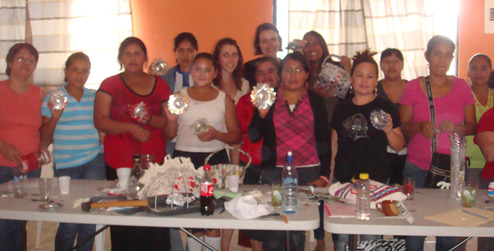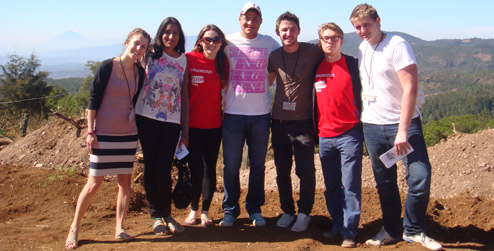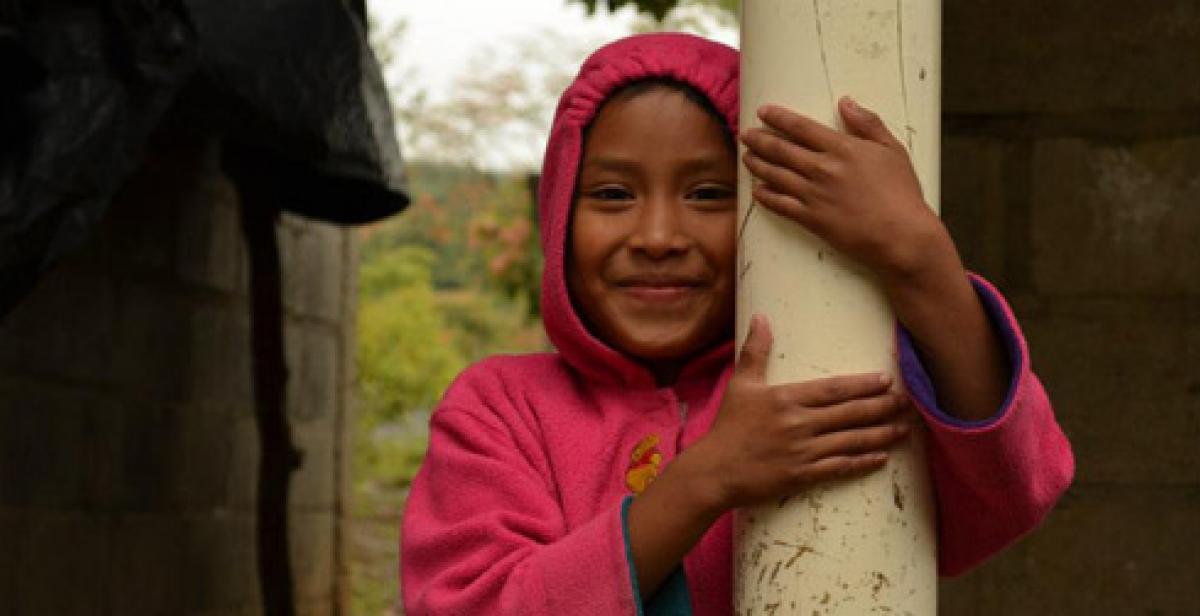Seemingly simple problems can be solved with simple solutions. On an individual level this is often the case. For example, to help the person lacking water to irrigate their fields you could quite simply solve the immediate problem by buying them a pump. This doesn’t really work to solve the issue in the long term and it’s also restricted to a relatively local level. At a higher, wider level other factors come into play and issues that might at first glance seem so straightforward, on closer inspection become much more complex and interrelated and thus harder to resolve. Whilst this complexity might be, and in fact often is, used as an excuse for intransigence and inaction by those with the power to decide, it remains equally true that failing to recognise the complexity of the situation can lead to errors and that rushing in without closer inspection and proper understanding can ensure a greater failing than failing to act at all.
During our time here we are slowly coming to grasps with this notion. Gradually we are beginning to realise that matters which may seem so simple and straightforward and which are frustratingly not resolved in the way which makes most sense to us are in fact much more complex than they first appear and require different and often much more time consuming action.
We have also come to realise that work in the office on research projects, providing training and strengthening relations between the community and the Cooperative is as important as the work we are doing in the fields. Whilst the physical transformation of a particular parcel of land provides instant gratification and a sense of fulfillment - a job well done - we must also recognize that work with less immediately obvious or tangible results is also of great importance. To this end, I have been concentrating most of my efforts this week on compiling research and surveys on the issue of domestic violence, a subject I am particularly interested in having studied it as part of my Masters. I have been supported in my efforts by all the team especially Sukhi Bath and Joanna Auburn along with Duncan Frankis who has useful skills and knowledge gained from his work with abused children in the UK.
It has also been amazing to see just how resourceful people can be when they must make do with comparatively little. Many things which we might simply disregard as rubbish they can find a use for-not only for their own personal use but also for profit. This week we have been participating in training sessions run by the Cooperative (COMULP). These sessions teach local women with few or little income-generating opportunities how to recycle every day household goods such as plastic bottles, cardboard and crisp packets into incredibly inventive goods which can be made in the comfort and security of their own houses and sold for profit.
Such items as purses and bags made from crisp packets, gift boxes and masks, lamps and jewellery boxes with intricate designs and attractive patterns. Dona Derma‘s sister, Flavia, travelled especially from Tegucigalpa in order to give the training which all the COMULP group and a few from the COMUCAP group took part in and shared some of their own recycling ideas. A self-confessed dunce in the creative department I marveled at the ingenuity of some of the designs. Seeing the examples of the final products which looked so tricky and intricate I doubted whether we’d be able to replicate them.

However, by the end of the day all the team had managed to produce an admirable version of the example metallic purse (Blue Peter eat your heart out!) proving that by following the process step by step it was indeed possible. Perhaps the lesson this week, therefore, has been learning that things which at first seem so simple may actually be more complex and thus require more consideration, others which appear difficult may in fact be easier, and that neither should dishearten us.
Another thing that has particularly struck me concerns the differing notions of time that we as European volunteers and the people of Honduras have. Whilst here I have been re-reading one of my favourite books, ‘In the Shadow of the Sun’, by the brilliant late Polish journalist Ryszard Kapusciski. In it he reminds us of the differences in the way in which much of us in the West use the concept of time compared to the way in which he sees the majority of Africans use it.
Time is something which the European, the North American, the Westernised individual uses to dictate his or her actions. At a certain time we will perform a certain activity. Whereas in Africa, and I suspect in many other developing countries amongst which I include Honduras, man dictates time. Put simply, things happen when man wants them too and when he or she does not. Time simply does not exist. For us it makes perfect sense to allow ourselves to be dictated by time and rigorous planning so that we can most effectively make productive use of our time.
We are able to do this as we can count on a system in which, by and large, tasks get completed when they are supposed to and everyone adheres to this system. However, for the man or woman in a developing country, where there is more uncertainty and the system may not always be as effective, it makes more sense for the individual to control time.
For example, in Europe in makes more sense for the bus driver to adhere to a strict schedule as his/her passengers rely on this service to arrive on time for their appointments, whereas for the driver of a bus in Africa, or Asia, or at times also in Latin America, it seems wiser to wait for the entire bus to fill to go, rather than leave on time half empty. Neither way is necessarily better or worse; they are simply different. And this is something we are learning to comprehend.

Progressio ICS volunteers Becky Higgins ans Suki Bath blog about the different lenses of development, recycling and the notion of time in Honduras
Photos by Progressio ICS Joanna Auburn



